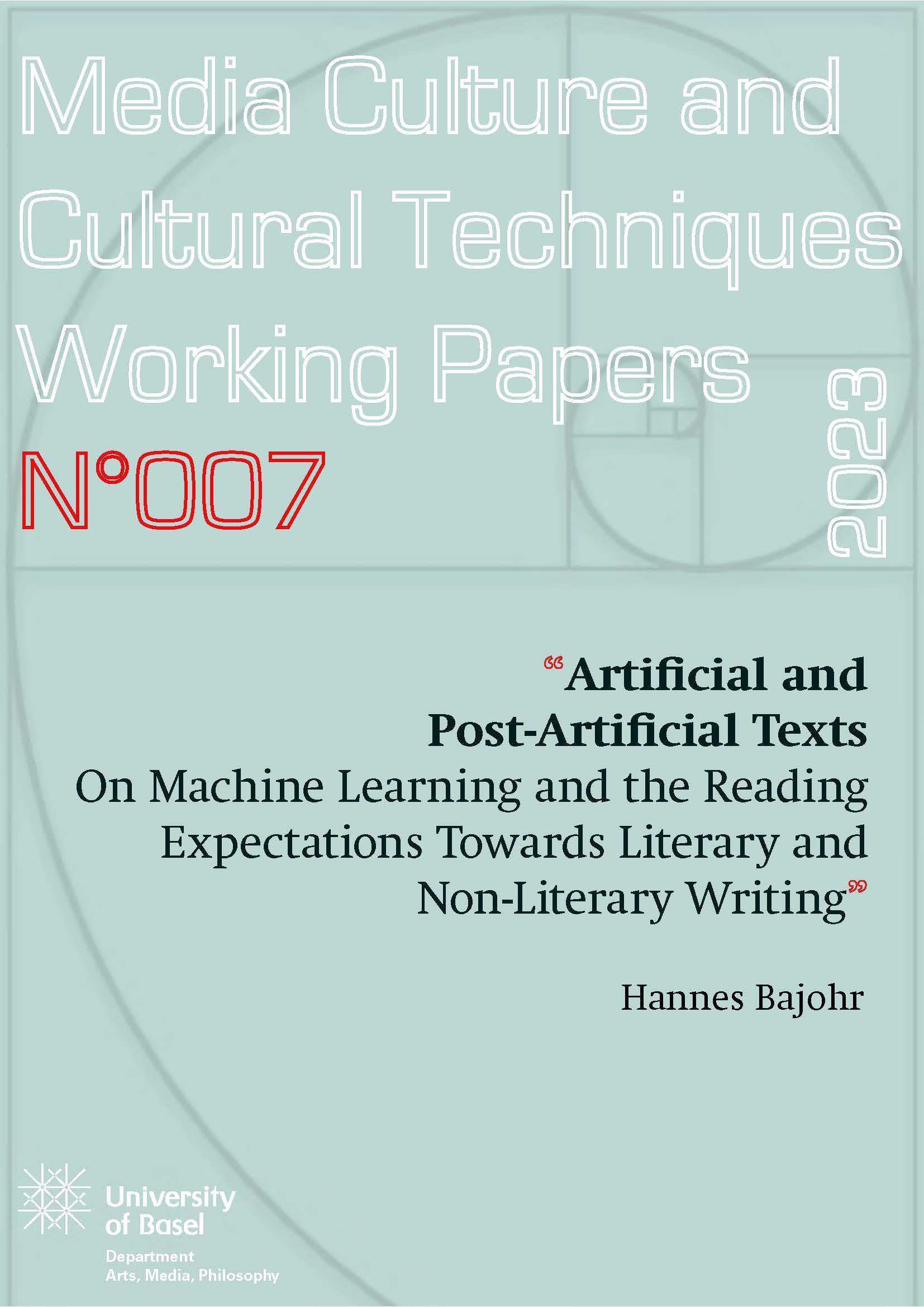Nr. 007 (2023): Hannes Bajohr: Artificial and Post-Artificial Texts. On Machine Learning and the Reading Expectations Towards Literary and Non-Literary Writing
It is here that I would like to begin today, by asking what impact the current rapid advances in machine learning research are having on the way in which we deal with language, or, to be more precise, their impact on our reading expectations. In contrast to the times of Höllerer and Zemanek, we are now truly on the threshold of being surrounded by texts that are entirely artificial—while at the same time we con-tinue to merge with our language technologies in our own writing, so that our text production is increasingly supported, extended, and partially taken over by assistance systems. Therefore, I want to discuss—quite speculatively, but always with an eye on the state of the art—two questions: first, what happens when we are confronted with artificialtexts in addition to naturalones? How do we read a text that we can no longer be sure was not written by an AI? And second, what direction might this development take if, at some point, the distinction between natural and artificial itself becomes obsolete, so that we no longer even ask about it and instead read post-artificial texts?

